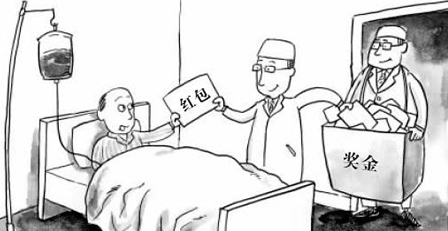The oral liquid veterinary drugs of our factory include multi vitamins, vitamin B, enrofloxacin, ciprofloxacin, totrozuli, diclazuli, albendazole, levamisole, temicaocin, etc.
Veterinary drugs refer to substances (including drug feed additives) used to prevent, treat and diagnose animal diseases or purposefully regulate animal physiological functions.
Veterinary Oral Solution OEM&ODM,Vitamin B Oral Solution Factory,Ciprofloxacin Oral Solution OEM,Veterinary Oral Solution ODM Shandong Unovet Pharmaceutical Co.,Ltd. , https://www.unovetcn.com The red envelope problem has always been a headache for the Ministry of Health. In recent years, with the deepening of medical reform, medical and health care facilities and medical facilities have greatly improved and improved. Only the red envelope is still a chronic illness in the medical field. Recently, the Ministry of Health seems to want to start addressing this issue. Not long ago, the Ministry of Health issued the “Guiding Opinion on Strengthening the Prevention and Control of the Risk of Integrity in Public Hospitals†and proposed that the doctor and the patient should sign the agreement. That is, when the patient is admitted to the hospital, the doctor must promise not to accept “red envelopesâ€, and the patient must promise not to send “red envelopesâ€. The agreement will be incorporated into the case management.
The red envelope problem has always been a headache for the Ministry of Health. In recent years, with the deepening of medical reform, medical and health care facilities and medical facilities have greatly improved and improved. Only the red envelope is still a chronic illness in the medical field. Recently, the Ministry of Health seems to want to start addressing this issue. Not long ago, the Ministry of Health issued the “Guiding Opinion on Strengthening the Prevention and Control of the Risk of Integrity in Public Hospitals†and proposed that the doctor and the patient should sign the agreement. That is, when the patient is admitted to the hospital, the doctor must promise not to accept “red envelopesâ€, and the patient must promise not to send “red envelopesâ€. The agreement will be incorporated into the case management.
It is true that this measure reflects that the Ministry of Health is eager to resolve this problem. However, as far as Xiao Bian sees it, this merely reflects the Ministry of Health’s helplessness on this issue. This move is really “playfulâ€. Can doctors and patients sign off to stop the red packet phenomenon? Obviously impossible. First of all, the red envelope transaction has always been a black-box operation, conducted in private. This kind of agreement that can be put on the table is a gentleman's agreement, and it is impossible to limit the behavior of a villain who accepts red envelopes. Moreover, the reason why patients have to send red envelopes is mainly because they fear that doctors who do not receive red envelopes will cut corners in the treatment process. Although any doctor hopes that his operation is successful, this explanation cannot always appease the patient's concerns. It is expected that the signing of the agreement between the doctors and the patients through the eradication of the red envelope phenomenon will inevitably be a negligence or even a shirk of responsibility by the administrator. They should not allow a defect caused by the system problem to be solved by the private sector. Instead, they must improve the patient’s doctor-to-doctor as soon as possible. The degree of trust.
From this point of view, this tactic is impossible to get through, and there are even some "three hundred and two silver here". Xiao Bian wants to say that to deepen health care reform, it is necessary to completely get rid of the circle of medical treatment. In order to truly solve the "red envelope problem" of doctors and patients, it is necessary first of all to rely on the individual conscience and morality of doctors. Those who have a good heart will never profit with conscience. Second, we must establish a sound and strict system constraints and supervision mechanisms, such as heavy penalties for doctors who receive patients with red envelopes, doctors for direct soliciting the practice of revoked medical qualifications, etc., the reason why this must be the next strong drug, Gain in the past in the hospital outpatient Departments, wards and other places hanging "rejection of red envelopes" card approach, with the ornamental, but it does not appear to effectively curb the doctor to receive red envelopes. The newly-launched "double-signing" plan is nothing more than for the doctors and the patients to "own themselves", which is inevitably irrelevant. Only this ingrained bad habit can produce heavy fists, and it can really serve the purpose of purifying the medical atmosphere by “scratching bonesâ€.
GMP in China's veterinary drug industry began to be implemented in the late 1980s. In 1989, the Ministry of agriculture of the people's Republic of China issued the code for quality management of veterinary drug production (for Trial Implementation), and in 1994, the detailed rules for the implementation of the code for quality management of veterinary drug production (for Trial Implementation). From October 1, 1995, all qualified drug manufacturers (workshops) and drug varieties can apply for GMP certification according to the requirements. The administrative department of health shall give priority to the enterprises (workshops) that have obtained the GMP certification certificate when applying for the production of new drugs. As of June 30, 1998, for enterprises (workshops) that have not obtained GMP certification, the administrative department of health will no longer accept applications for new drug production.
On March 19, 2002, the Ministry of agriculture revised and issued the new veterinary drug production quality management specification (hereinafter referred to as veterinary drug GMP specification). Announcement No. 202 was issued on June 14 of the same year, stipulating that the transition period from June 19, 2002 to December 31, 2005 is the implementation of GMP for veterinary drugs, which shall be enforced from January 1, 2006. Since then, China has poured out a large number of GMP veterinary drug enterprises